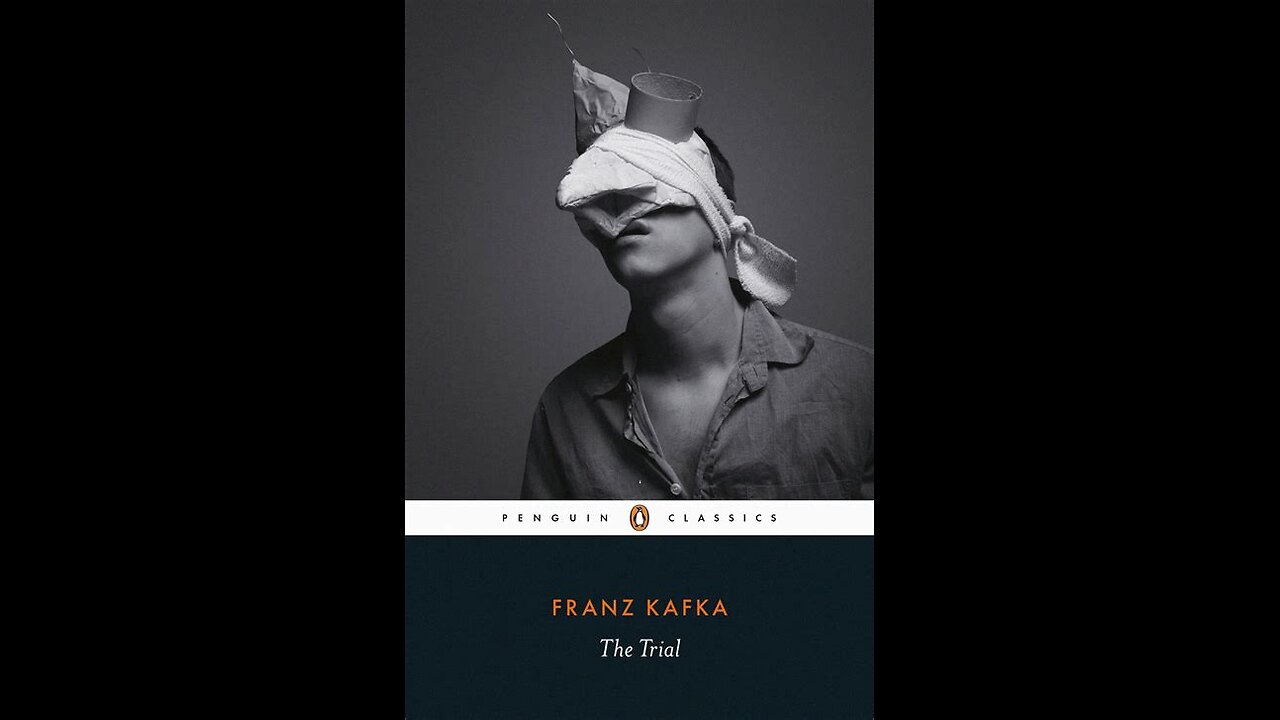Premium Only Content

The Trial by Franz Kafka | Summary and Critique
Buy Here: https://amzn.to/47eVUda
""The Trial"" by Franz Kafka is a surrealist novel that follows the protagonist, Josef K., as he finds himself entangled in a bizarre and nightmarish legal system. The story unfolds with Josef waking up one morning to find himself under arrest, though the nature of his crime remains elusive. Throughout the novel, Josef grapples with the bewildering and arbitrary nature of the legal proceedings against him, navigating a labyrinthine bureaucracy that offers little clarity or justice.
As Josef tries to understand and defend himself against the ambiguous charges, he encounters a series of eccentric and enigmatic characters, each contributing to the absurdity of the legal process. The novel explores themes of alienation, the dehumanizing nature of bureaucracy, and the elusive quest for justice in a surreal and oppressive world.
Kafka's writing style in ""The Trial"" is characterized by its dreamlike quality and ambiguity, contributing to the sense of disorientation experienced by both the protagonist and the reader. The narrative is filled with symbolism, creating a rich and open-ended allegory that invites various interpretations.
Critically, ""The Trial"" has been celebrated for its exploration of existential and psychological themes, reflecting the anxiety and absurdity of the human condition. The novel has been interpreted as a critique of oppressive systems of power and the individual's struggle for autonomy within such systems.
However, some readers and critics have noted that the narrative's intentional lack of resolution and closure may leave readers feeling frustrated or unsatisfied. The novel's deliberate ambiguity has sparked debates about its intended meaning and the extent to which Kafka sought to convey a specific message.
In essence, ""The Trial"" stands as a profound and influential work of literature that continues to captivate readers with its exploration of existential angst, the dehumanizing effects of bureaucracy, and the elusive quest for justice in an absurd world. Its open-ended nature invites ongoing discussion and interpretation, ensuring its enduring significance in the realm of literary classics."
-
 LIVE
LIVE
SynthTrax & DJ Cheezus Livestreams
1 day agoFriday Night Synthwave 80s 90s Electronica and more DJ MIX Livestream 80s Night / Late Night Nostalgia
410 watching -
 4:05:52
4:05:52
Nerdrotic
9 hours ago $12.64 earnedHollywood REGRET | Disney's Predator | The Feminist Avengers - Friday Night Tights 379
53.6K16 -
 2:36:22
2:36:22
Mally_Mouse
4 days agoFriend Friday!! 🎉 - Let's Play! - MIMESIS
23K3 -
 41:20
41:20
MattMorseTV
5 hours ago $21.93 earned🔴Schumer just BACKSTABBED his OWN VOTERS. 🔴
32.5K73 -
 3:33:34
3:33:34
MissesMaam
6 hours ago*Spicy* Friend Friday with Mally_Mouse!! 💚✨
10.5K3 -
 57:44
57:44
Candace Show Podcast
6 hours agoBen Shapiro Is Crying Again. | Candace Ep 261
58.5K221 -
 4:13:24
4:13:24
megimu32
5 hours agoOFF THE SUBJECT: MEMESIS w/ MALLY MOUSE | MISSES MAAM | SAVAGEJAYGATSBY
5.45K2 -
 LIVE
LIVE
a12cat34dog
5 hours agoI AM FINALLY BACK | Dying Light: The Beast x PUBG | COLLABORATION EVENT {18+}
39 watching -
 4:26:16
4:26:16
John_Goetz
5 hours agoJohn Gets Playing - Clair Obscur Expedition 33
2.25K2 -
 1:03:44
1:03:44
BonginoReport
7 hours agoNew Yorkers Are Movin' Out - Nightly Scroll w/ Hayley Caronia (Ep.173) - 11/06/2025
129K77